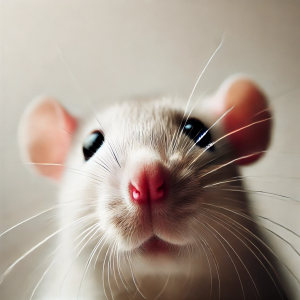
Rodent Infestations in Air Ducts Raise Health Alarms in Virginia Beach and Williamsburg
Rodent infestations in air ducts found in Virginia beach to Williamsburg.
Recent reports from homeowners in Virginia Beach and Williamsburg have brought to light a disturbing trend: rodent urine and droppings found inside residential air duct systems. Local HVAC professionals and pest control companies are warning residents of the serious health implications this poses, particularly for those with respiratory conditions.
Rodents, including rats and mice, often seek shelter in warm, enclosed spaces like air ducts. When they urinate or defecate in these systems, their waste particles can become airborne, circulating throughout the home each time the HVAC system is in use.
Here’s an expanded explanation of the disease concerns related to a rodent infestation in your home’s air ducts:
Health Risks of Rodent Infestations in Air Ducts
When rodents such as rats and mice infiltrate air duct systems, their droppings, urine, dander, and nesting materials can contaminate the air that circulates throughout your home. This creates a serious health risk, especially for young children, the elderly, and individuals with weakened immune systems or respiratory issues.
Key Diseases Associated with Rodent Waste in Air Ducts:
1. Hantavirus Pulmonary Syndrome (HPS):
Cause: Inhalation of airborne particles from rodent urine, droppings, or saliva.
Symptoms; Fever, muscle aches, shortness of breath; can be fatal in severe cases.
2. Leptospirosis:
Cause: Bacteria in rodent urine can enter the body through mucous membranes or small cuts.
Symptoms: Fever, chills, muscle aches, vomiting; in severe cases, kidney or liver damage.
3. Lymphocytic Choriomeningitis Virus (LCMV):
Cause: Contact with infected rodent urine or droppings.
Symptoms:** Flu-like symptoms, neurological complications in rare cases.
4. Salmonellosis:
Cause: Contamination of food or surfaces with rodent feces.
Symptoms: Diarrhea, fever, stomach cramps.
5. Allergic Reactions and Asthma:
Rodent dander, urine, and droppings can trigger allergic reactions and asthma attacks, especially when particles become airborne via HVAC systems.
What to Do If You Suspect Rodents in Your Air Ducts
- Do Not Disturb Contaminated Areas:** Avoid sweeping or vacuuming rodent waste, which can send harmful particles into the air.
- Contact Professionals:** Hire licensed pest control and HVAC professionals to safely remove rodents and clean the ductwork.
- Test Air Quality:** Consider indoor air quality testing to assess contamination levels.
- Seal Entry Points:** Prevent future infestations by sealing gaps in walls, attics, and basements.
“Breathing air contaminated with rodent waste can lead to a range of health issues,” said George Pilkington, a pest control professional with Universal Pest 7 Termite . “These can include allergic reactions, asthma attacks, and in some cases, diseases like Hantavirus or leptospirosis.”
Affected homeowners have reported unusual odors, increased allergy symptoms, and in some instances, visible rodent activity. HVAC experts emphasize the importance of regular duct inspections and cleanings, particularly in older homes or those near wooded areas.
What Homeowners Should Do:
- Have HVAC systems inspected and cleaned regularly
- Seal any openings in attics, basements, or crawl spaces
- Contact pest control immediately if rodent activity is suspected
Health officials recommend that anyone experiencing respiratory symptoms consult a medical professional and consider testing indoor air quality.
For more information or to schedule an inspection, contact your local Duct Cleaning or pest control provider.
Contact:
Universal Pest & Termite
757-502-0200
www.universalpest.com
George Pilkington
Universal Pest & Termite, Inc.
email us here
Visit us on social media:
Instagram
Facebook
YouTube
TikTok
X
Mouse peaking Out Of air Duct
Distribution channels: Food & Beverage Industry, Healthcare & Pharmaceuticals Industry, Social Media
Legal Disclaimer:
EIN Presswire provides this news content "as is" without warranty of any kind. We do not accept any responsibility or liability for the accuracy, content, images, videos, licenses, completeness, legality, or reliability of the information contained in this article. If you have any complaints or copyright issues related to this article, kindly contact the author above.
Submit your press release

